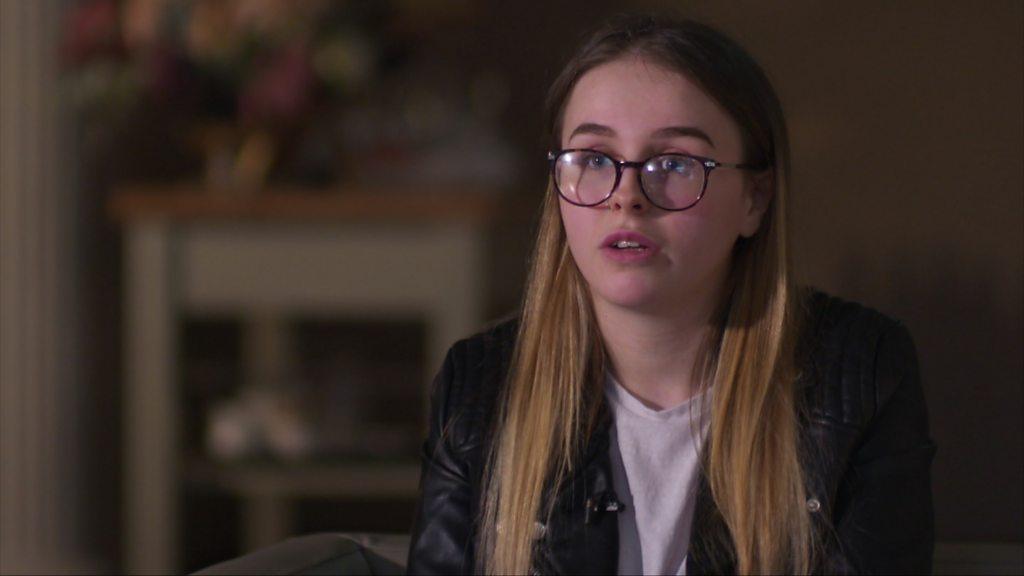Covid-19: New calls for care home pandemic public inquiry
- Published
'Care home work completely changed me as a person'
The commissioner for older people Eddie Lynch has called for a Northern Ireland-based inquiry into the handling of care home residents during the Covid-19 pandemic.
Former employees of a Newtownabbey care home where 14 residents died during the first wave echoed the call.
Speaking to BBC Spotlight, one said the deaths had been "pushed to the side".
The Department of Health said its minister Robin Swann wanted a public inquiry "as soon as is practicable".
Former care workers Clara Wilson and Rhonda McKeown have spoken for the first time about their experience at Glenabbey care home in spring 2020.
"If these deaths had happened in a children's home I think there would have been an investigation a long time ago, but because it's the elderly it just seems to be pushed to the side," said Ms McKeown.
The Department of Health said the timing of an inquiry would have to take account of the entire health system being focused on fighting Covid-19 and the resultant pressures.
And it said that central aspects of the pandemic response were on a UK-wide basis, including testing and vaccination supply.
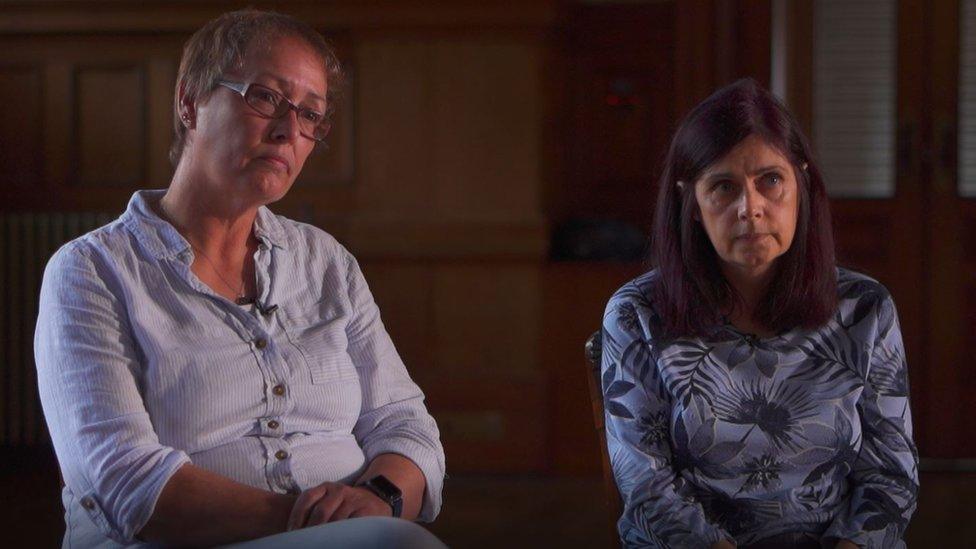
Clara Wilson and Rhonda McKeown spoke to Spotlight about their experience in Glenabbey care home in 2020
Mr Lynch said he had spoken to political parties about the issue in recent weeks.
"Over the past year, we witnessed the incorrect recording of care home deaths, families having no access to loved ones, PPE supply problems, inappropriate use of do not resuscitate orders, the slow introduction of testing, the transfer of Covid-positive patients into care homes - the list goes on," he added.
Speaking to Spotlight, the former Glenabbey employees were critical of government policy on testing of people being discharged from hospital to care homes in the early days of the pandemic.
On 3 April 2020, a Health and Social Care Board official, writing to care home providers, stated: "There is no expectation that patients are tested for Covid-19 before discharge".
The policy was adopted by trusts across Northern Ireland.
It led to the Northern Health Trust and the Belfast Health Trust, both of which sent patients to Glenabbey in the first wave, discharging hundreds of patients who had not been tested, and a small number of people who were positive, to care homes between February and June 2020.
Another former Glenabbey care worker, 20-year-old Fiona Hopkin, told Spotlight one resident at the home was discharged from Antrim Hospital without being tested.
They then tested positive at the home soon after.
'Terrible situation'
Ms McKeown, whose mother was a resident at the home, said the policy left the home "exposed".
"We need to know why that happened because carers were then put in a terrible situation and left to deal with that," she said.
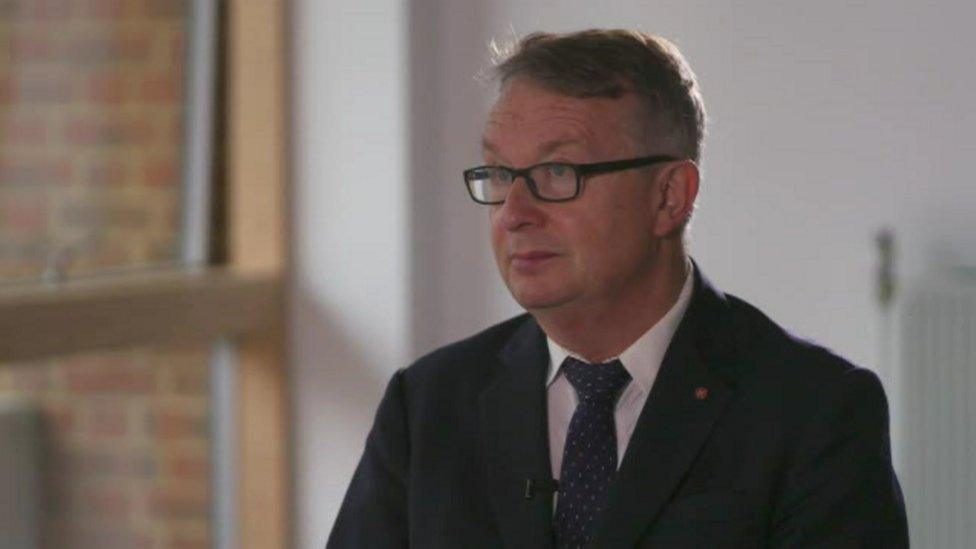
Prof Martin McKee from the London School of Hygiene and Tropical Medicine
Routine testing of people before they were discharged from hospital to care homes was introduced on 19 April 2020.
The Department of Health published a report last year which said evidence did not support a close link between hospital discharges and Covid-19 outbreaks in the first wave.
Public health expert Professor Martin McKee of the London School of Hygiene and Tropical Medicine said he did not think the report's methods were comprehensive enough.
"If you want to understand why there is an outbreak in anywhere, a care home, a cruise ship, whatever you will do a detailed epidemiological analysis looking at where the cases came from and the pattern of transmission and that wasn't done," he added.
The Department of Health said its report's findings were consistent with studies by public health agencies elsewhere in the UK which found discharges were not associated with a significant risk of a care home outbreak - though a small risk could not be ruled out.
It said early in the pandemic it did not have the capacity to test patients that it has now.
Earlier this year, Prime Minister Boris Johnson pledged a UK-wide inquiry, but Scotland is in the process of setting up its own inquiry.
Mr Lynch said he wanted the Stormont Executive to also have its own inquiry.
"I urge the NI executive to conduct an inquiry which specifically looks at the care and management of residents and care homes and not to delay any longer in commencing what is likely to be a long process," he said.
Related topics
- Published22 November 2021
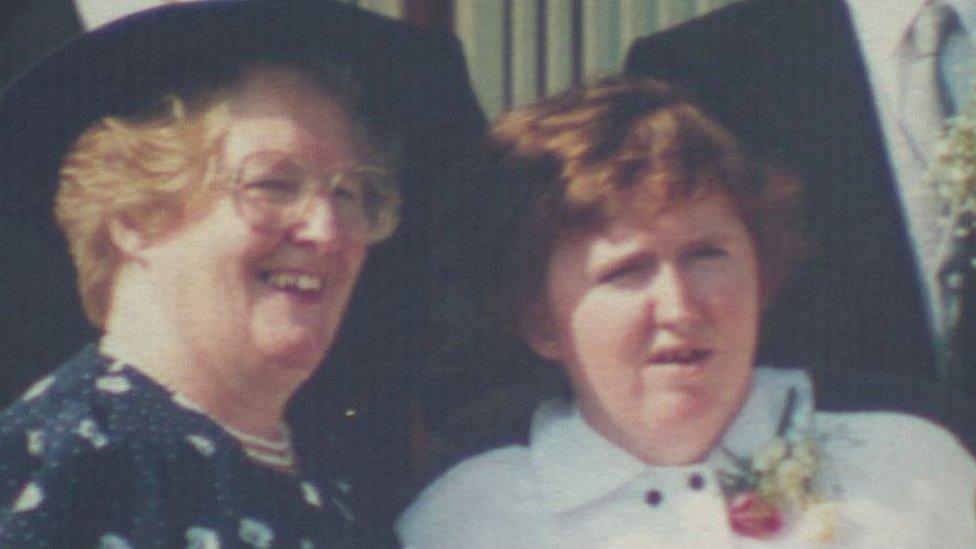
- Published20 November 2021
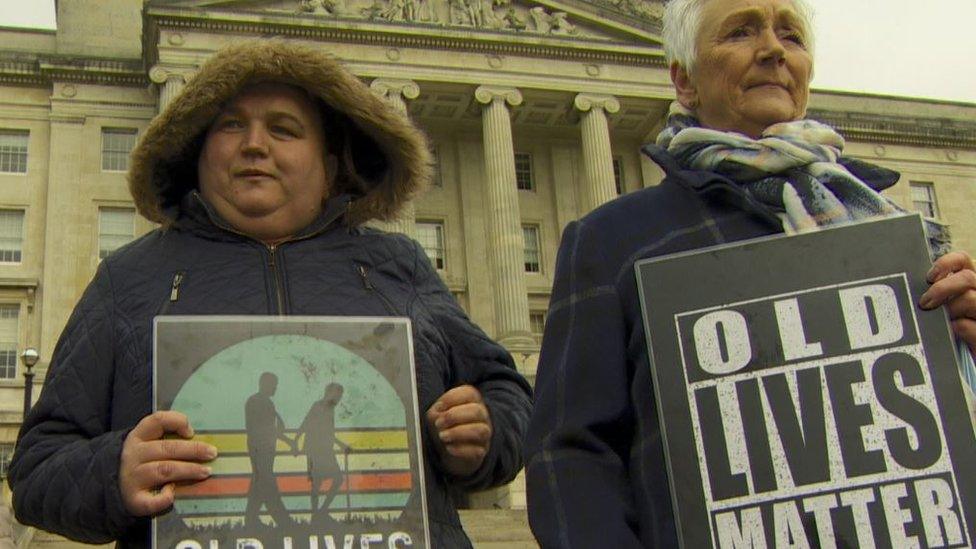
- Published20 November 2021

- Published23 November 2021
